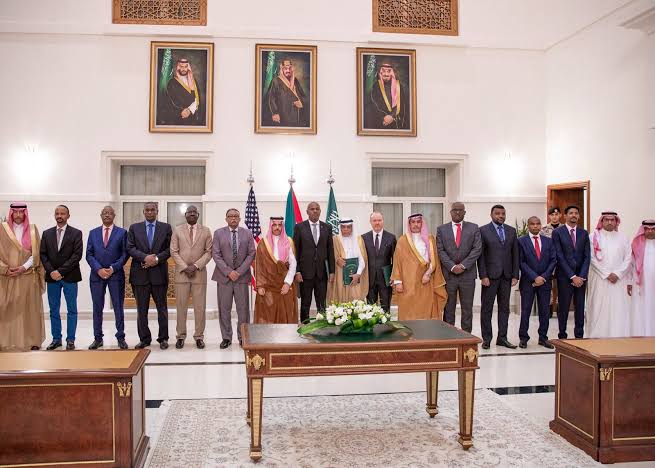Report
Khartoum, July 7(Darfur 24)
As time passes by, everyday, opportunities for the success of international and regional initiatives to resolve the current conflict in Sudan between the Sudanese army and the paramilitary rapid support forces RSF diminishes.
Two weeks ago, the governor of Darfur region, Minnawi Arko Minnawi spoke of his readiness to lead a national initiative to end the war in Sudan.
He also Twitted” the war in Sudan has entered a critical stage that threatens unity of the country and opportunities for international and regional initiatives to resolve the crisis in Sudan are waning..
“Due to this deadlock, we once again renew the national initiative for reconciliation, hoping that it will succeed and pave way for ceasefire and facilitate delivery of humanitarian aid and then move forward to address the root cause of the crisis in Sudan. Added Minnawi ”
Minnawi said the role of the international community should be boosting for the initiative , affirming his readiness to liaise with the Sudanese army and the Rapid Support Forces RSF.
Meanwhile, spokesperson of the politics process khalid Omer said on Friday evening that the Forces for Freedom and Change (FFC ) currently exerting tremendous efforts to coordinate the national initiative and form a broad national front so as to connect it with the international and regional initiatives, disclosing his continuous liaison with the parties to the conflict..
Khalid Twitted “we have been continuing our contact with the two parties to urge them cease fighting and negotiate peaceful solution to the conflict.
This week, FFC delegation (the central council) has embarked on a tour to a number of regional countries, including Ugandan, Kenya and Ethiopia as well as Chad and Saudi Arabia, to boost the international and regional efforts that aimed at stopping the war and convince them of the importance to embrace the civi vision in addressing the root causes of the Sudanese criss.
Will the national initiatives succeed in realising what the international and regional ones have failed to achieve?
Signing of the first Jeddah agreement between the parties to the conflict is the answer to the question, and also leads to the role of the national initiatives and their abilities to deal with local crisis..
The cities of Nyala, El-Daein and Elfashir witnessed local initiative to stop the war in the aforementioned cities, following eruption of the conflict, but yielded little success, convincing the warring parties in Nyala and Elfashir to stop fighting for at least several weeks , but eventually collapsed due the natural development of the war and the mechanism’s lack of tools to pressure and hold accountable any party that violated the the agreement.
But in the city of El-Daein the local community mechanism has succeeded to convince the parties to conflict ( the Sudanese army and the paramilitary rapid support forces RSF) not to enter into a conflict , despite several attempts to drag the two rival forces to war.
Political analyst, Wail Mahgoub, says the national initiatives have so far failed to bring the Sudanese army and the Rapid Support Forces RSF to one negotiation table.
While journalist Dahab believes the initiative of the political force which began this week is too late. The delay of the initiative has made the situation worse and totally complicated the scene expanded the war.
The conflict has taken dangerous path, especially after six major tribes in Darfur announced last week its allegiance to one party to the conflict, a matter that may lead to possiblity of civil war in an event that it’s not contained.
Dahab believes that the Sudanese political forces should agree to form one initiative to stop the war and return to the political path, but observers say the two wings of FFC still insisting on their pre-war disagreement, will the lack of raapprochment between the Sudanese political forces impede arrival of amicable solution to the complicated Sudanese conflict?

